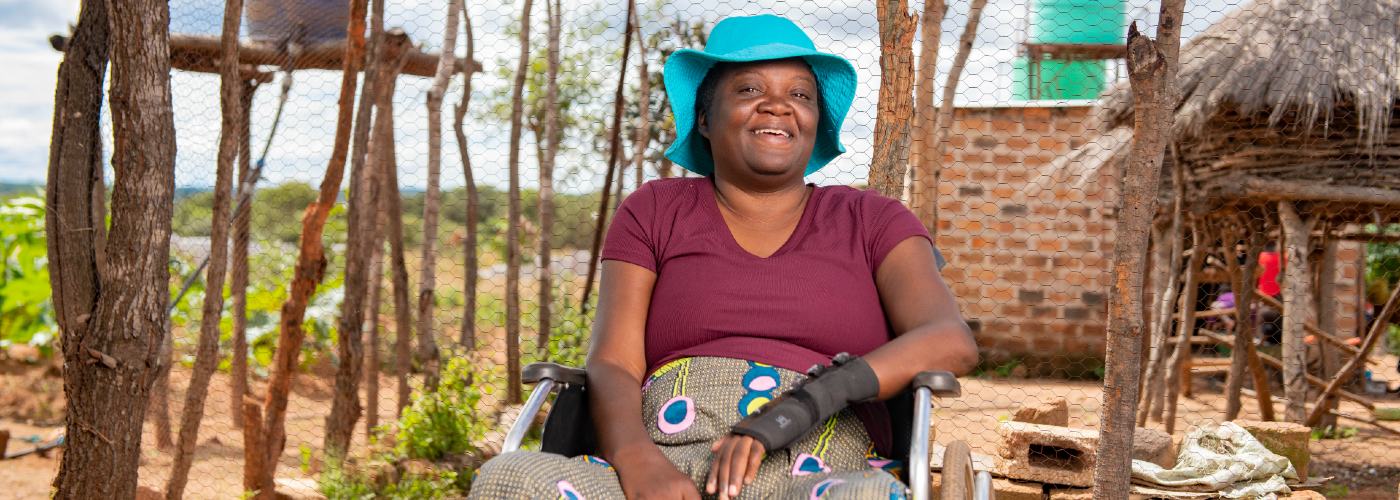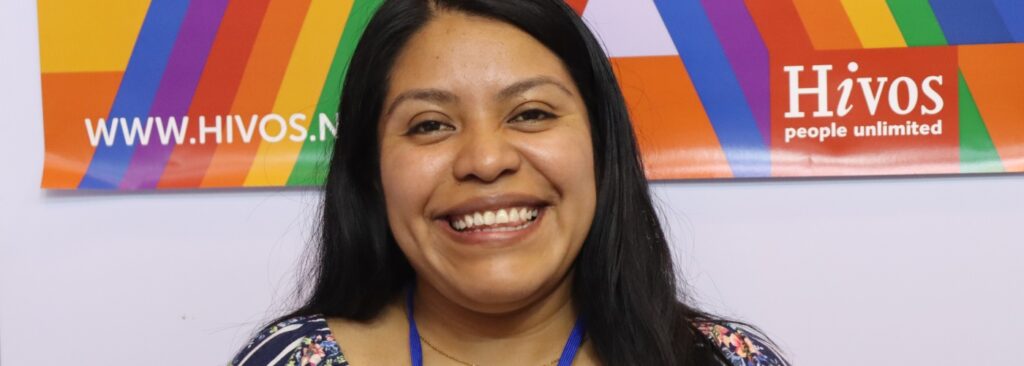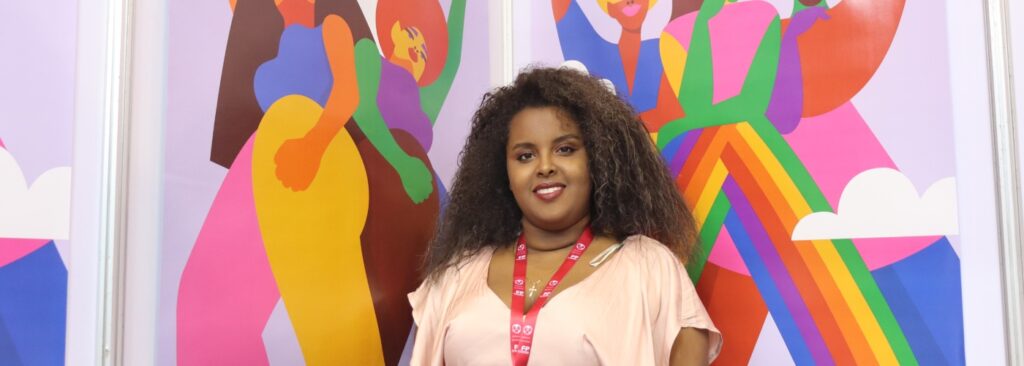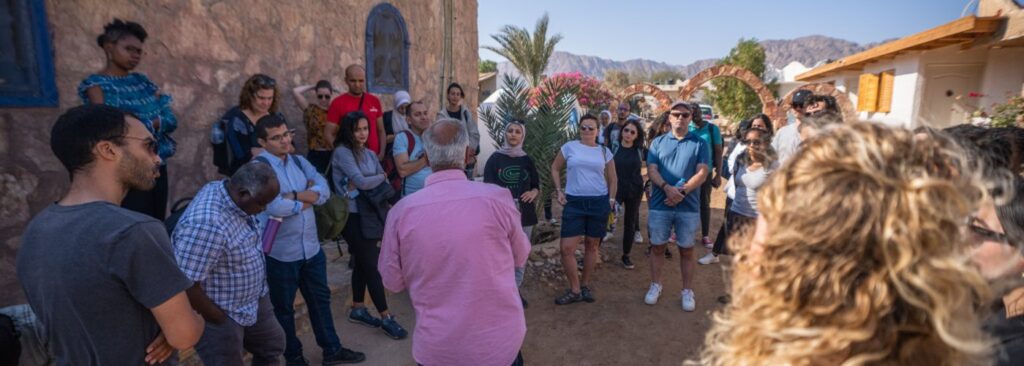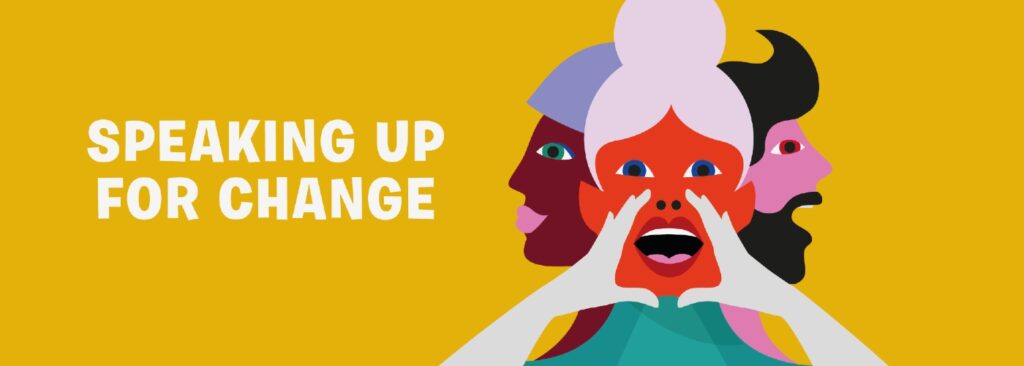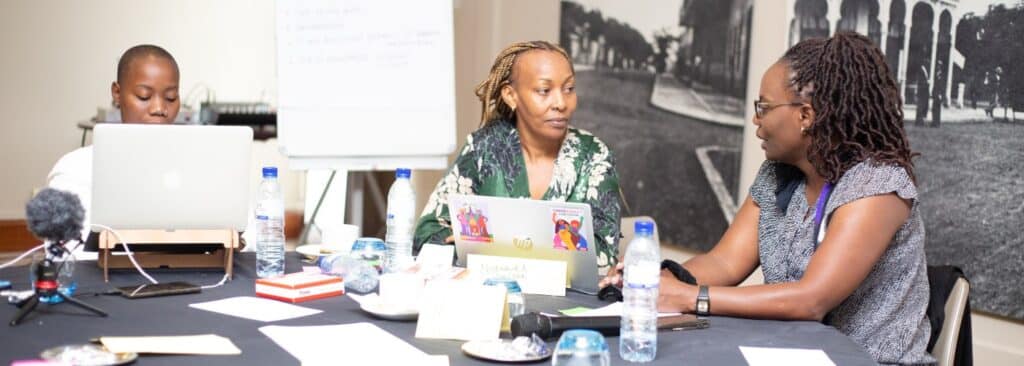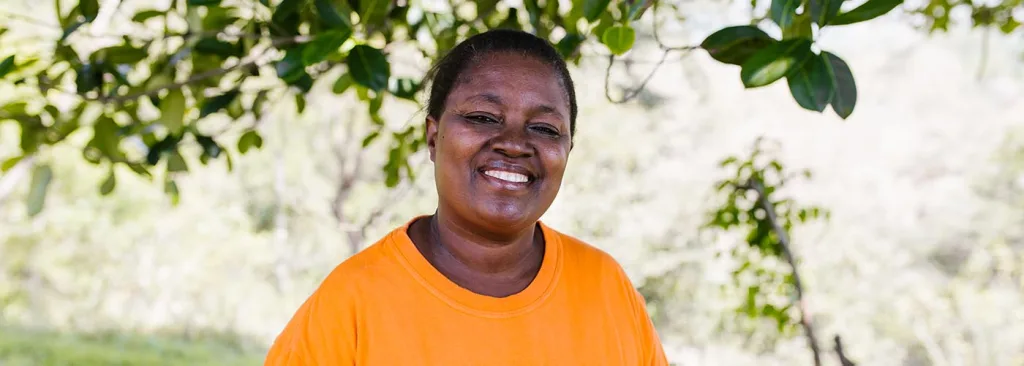Courageous women are tackling global issues
People all over the world are facing major challenges: the climate crisis, growing inequality, and exclusion due to discrimination. While some people lose courage, others act.
We would like to introduce you to three courageous women who, despite setbacks and resistance, are committed to achieving a better world. One where people have control over their bodies and access to healthcare, and where people can combat the climate crisis with their own solutions. Hivos makes sure they have the resources, network, knowledge and funding they need to set change in motion.
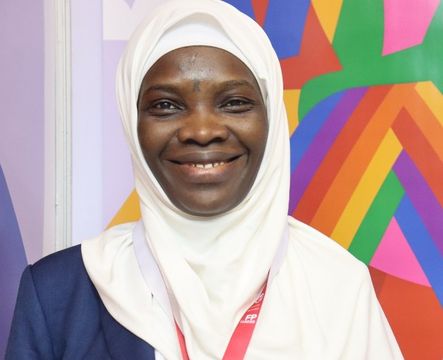
More control
Oppression of young women is on the rise in many countries. As a result, sexual and reproductive rights also come under pressure. But a sexually healthy life is not a luxury. It forms the basis of a safe and fulfilled existence. Rahinatou Moussa Souna is committed to young women’s sexual health in Niger, and in particular to women with disabilities.
These women are often overlooked when it comes to sexual health and physical integrity. Rahinatou knows all about that. She contracted polio as a baby and grew up in a society where girls like her don’t count. “Most family planning services are not accessible to us. We are not expected to have sex,” she says.
In Niger, women with disabilities usually end up in forced marriages, often with men who also have a disability or who are considered “inferior” by society.
Together with Hivos, Rahinatou is working to strengthen the position and influence of young women. “It’s high time we get to speak for ourselves and have a say in our rights.”
Working on local solutions yourself
Climate change in Zambia is causing increasingly severe periods of drought, flooding and drastic changes in the growing season. This especially impacts groups that are already excluded and have little say in decision-making, like women. So Lucy Dende took matters into her own hands and, with support from Hivos, started researching local solutions for climate change. Now she is an example for women around her.
Tired of waiting for action from the government, Lucy got together with other farmers to try organic ways of fighting climate change. “Women in particular have to deal with the impacts of climate change, so right now we’re very busy planting trees to tackle deforestation,” she says.
It is not easy to persuade others to stop cutting down trees. But she is convinced that the collaboration with Hivos will help expand her work. “We’ve shown that we have our own solutions. We just need support to put them into practice.”
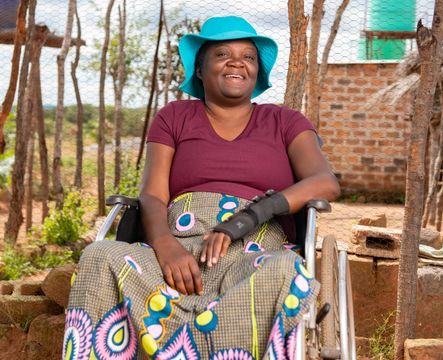
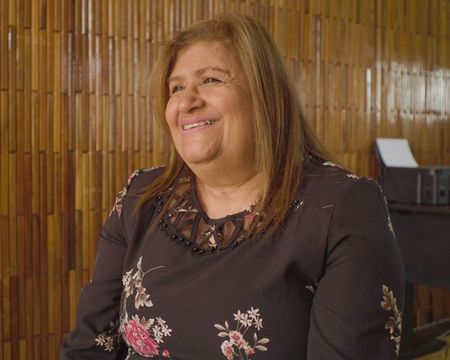
Access to healthcare: a human right
These days it is easier to live with HIV. There are drugs to suppress the virus and prevent it from spreading. Yet more and more people are getting infected every year in 45 countries. This is largely the result of the increasing discrimination and stigmatization faced by vulnerable groups. Alma de León sees this on a daily basis in conservative Guatemala.
Together with Hivos, Alma is standing up for the rights of people living with HIV in Latin America. From her work she knows that it’s more difficult for some people to get medicines than others. “Let’s be clear. A person’s gender, sexuality, or whether they use drugs or sell sex, doesn’t in itself increase the risk of infection. But marginalization does. This means, for example, that women and transgender people don’t get access to life-saving medicines.”
Alma wants to make it easier for everyone to get the care they need. “We’re working hard to remove legal barriers to the purchase of life-saving medicines. Access to healthcare is a human right.”

